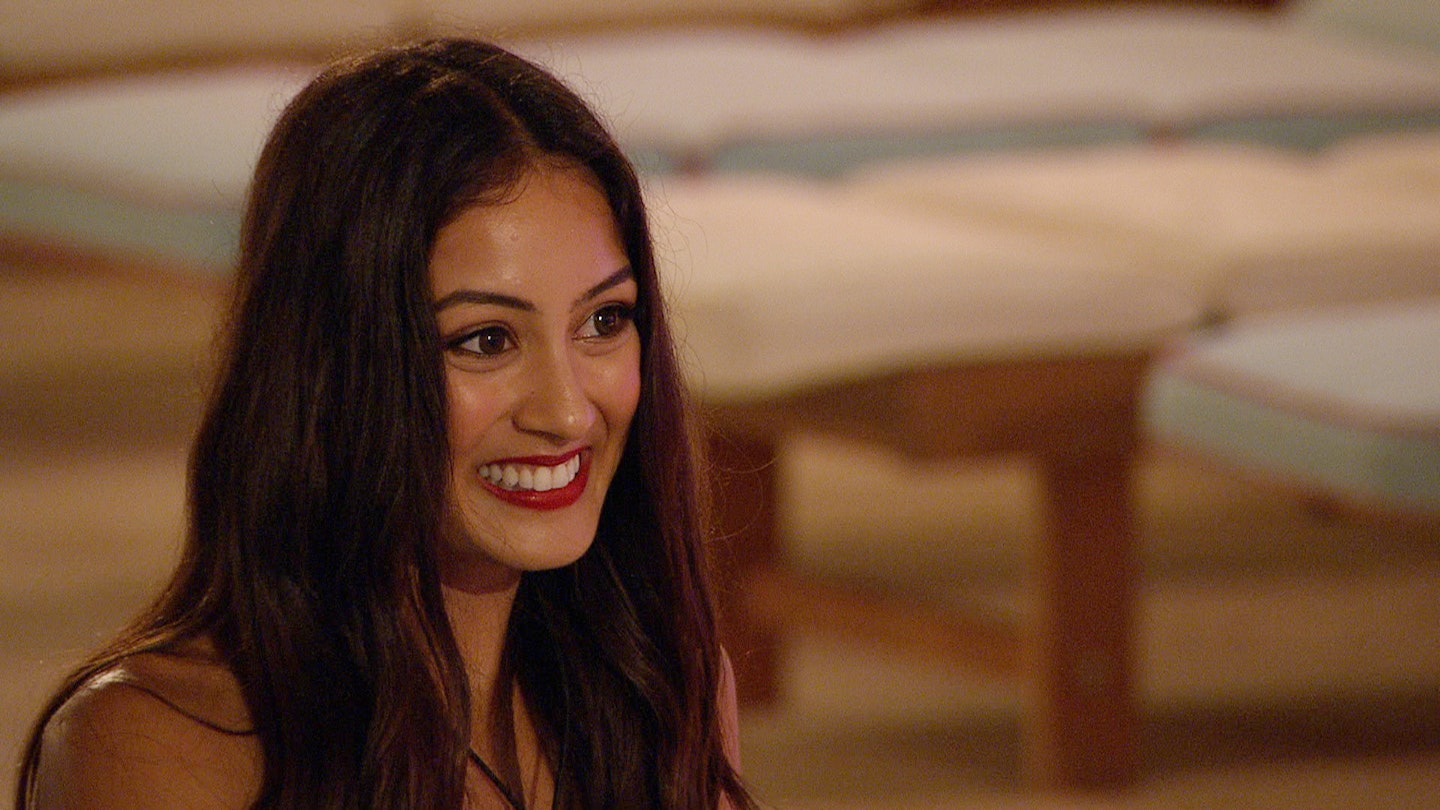At this point, it’s not novel or groundbreaking to say that Love Island is abysmal when it comes to representing people of colour. Even ITV’s own digital controller admitted in 2018 that he “made no excuses” for the lack of diversity on the show.
Notably, Asian representation on the show has been severely lacking. Only a handful of Asian women have walked through the villa’s doors, including Malin Andersson from season two and Kaz Crossley from season four. It’s a similar story when it comes to Asian male contestants: there’s only been Omar Sultani from season one and Nas Majeed from season six.
For a brief moment, season seven seemed like it would be different. It had lots of promise: the original line-up included half-Indonesian, half-Polish civil servant Sharon Gaffka and half-Indian, half-Scottish glamour model Shannon Singh, while bombshell AJ Bunker had Filipino heritage.
I don’t want to see Asian women launched into the show pell-mell like this.
As a mixed-race woman with South Asian heritage myself, I was particularly excited to see how Shannon would fare on the show. It felt good to see someone with the same skin colour as me represented on TV, especially on a show which is dominated by unequivocally beautiful people - because the usual absence of South Asian women on the show implies that we don’t belong in a space that is typically the reserve of stunning women.
Beyond Love Island, South Asian representation on TV is lamentable. A report by Ofcom in 2018 found that despite making up 7.1% of the population, South Asian people only make up 3.4% of the on-screen UK ‘TV population’ - making us the least represented minority group in British media. And when Asian actors do get roles, brown characters are often based on stereotypes: think nerds, doctors, or corner shop owners. And this has real-life consequences: as academic George Gerbner put it, “representation in the fictional world signifies social existence; absence means symbolic annihilation.”
Gerbner’s theory remains apposite - representation is, undoubtedly, hugely important - but he was writing in 1976, and you would hope that in 2021, we would have moved past representation for representation’s sake - otherwise known as tokenism. But it seems that, on Love Island at least, this isn’t the case.
Shannon’s appearance on Love Island was so brief that it was rendered almost pointless. Can we really call it ‘representation’ if she only graced our screens for two nights? I think this is also why I’m struggling to feel as excited for Priya Gopaldas’ arrival in the villa this week - what good is ‘representation’ when she’s made her entrance just two weeks from the final and doomed to be dumped ASAP? Social media users were also critical of her crush on Boris Johnson - which expectedly raised a few eyebrows, given the fact that Priya is both a medical student and woman of colour - so it doesn’t seem likely that she’ll be saved by the public vote either.
I don’t want to see Asian women launched into the show pell-mell like this. I want them to be main characters, embroiled in love triangles and going on dates, not sitting on the sidelines as the latest bombshell announces his type is “blonde hair and blue eyes.” As Sharon put it in a recent interview with Insider: “The producers are meant to match people. With Hugo, his type is blonde and there were lots of blonde girls in the villa - but whose type was I?"
It’s an uncomfortable truth, but we must also acknowledge that the producers can only do so much. They can and should do what is within their power - cast more contestants from ethnic minority backgrounds, cast more people whose type is not “blonde with blue eyes”, be mindful of optics when dumping a black or brown contestant for no good reason (à la Shannon) - but Love Island does not exist within a vacuum. It’s microcosmic of the real world, and as a result, racism and colourism are still very much alive and well inside the villa.
But it’s a vicious cycle, too. It’s possible that representation on Love Island would actually help, in some small way, to combat discrimination in the dating world: but for this to happen it’s vital that we see true representation, and not just the paltry tokenism we’ve seen so far.
READ MORE:
This Is The Most Complained About Love Island Moment Of All Time
